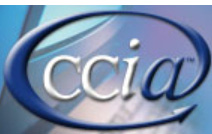 On July 11, 2011, the Computer & Communications Industry Association (CCIA) presented the results of a study (prepared by Capital Trade, Inc.) on the value of fair use in the U.S. economy. The study—which was conducted using a methodology developed by the World Intellectual Property Organization—found that fair use-reliant industries have contributed significantly to the U.S. economy since 2002 and held their own during the recent economic crisis. (The study will be available here.) Professor Peter Jaszi of American University Washington College of Law assisted in establishing a definition for ‘fair use-related industry’ for the purposes of the study. CCIA President and CEO Edward Black introduced the study by stating that, while intellectual property monopolies can be worthwhile to incentivize certain behaviors, many industries depend on limitations of these exclusive rights in the form of the fair use doctrine.
On July 11, 2011, the Computer & Communications Industry Association (CCIA) presented the results of a study (prepared by Capital Trade, Inc.) on the value of fair use in the U.S. economy. The study—which was conducted using a methodology developed by the World Intellectual Property Organization—found that fair use-reliant industries have contributed significantly to the U.S. economy since 2002 and held their own during the recent economic crisis. (The study will be available here.) Professor Peter Jaszi of American University Washington College of Law assisted in establishing a definition for ‘fair use-related industry’ for the purposes of the study. CCIA President and CEO Edward Black introduced the study by stating that, while intellectual property monopolies can be worthwhile to incentivize certain behaviors, many industries depend on limitations of these exclusive rights in the form of the fair use doctrine.
Mr. Black then introduced Representative Jared Polis (D-CO) to discuss his views on the importance of fair use. Representative Polis stated that the fair use doctrine is critical to a robust Internet-based economy. He argued that the intellectual property legal framework needs to catch up with the economy as currently developed, and that fair use is a cornerstone of building a copyright system that will work well in the future. He also stated that fair use doctrine benefited companies doing business on the Internet in the form of higher market capitalization, higher employment, and higher sales. He cautioned against adopting changes to the law which would restrict fair use protections, as these could negatively affect the market capitalization, employment, and sales of American businesses.
Andrew Szamosszegi of Capital Trade, Inc. then presented the results of the study (highlights can be found here). In short, the study found that fair use-related industries experienced considerable growth in terms of revenue, value added to the economy, employment, and exports in the period from 2002 to 2009. Mr. Szamosszegi stated that fair use undergirds important economic activities in the digital age, and that the benefits of fair use are widespread (to both employers and employees). He concluded his remarks by emphasizing that the growth in fair use-related industries consistently outpaced that of the U.S. economy as a whole during the period of the study.
Finally, CCIA Executive Vice President and former member of the European Parliament Erika Mann discussed the study and its implications for European intellectual property laws. She stated that there is no fair use doctrine in European intellectual property regimes, which makes statistics hard to come by. She did state that she believed that the U.S. Internet economy has been able to grow more quickly than the European Internet economy due to the robust fair use protections afforded by the U.S. intellectual property regime. Thus, Ms. Mann suggested more harmonization among the two dozen intellectual property regimes in the European realm and inclusion of something closer to the fair use doctrine in European law to grow the European Internet economy.




